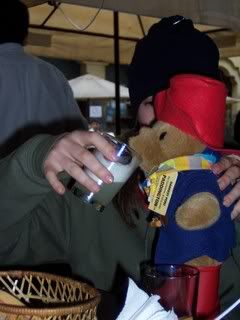A couple of months ago I read a great book called Working Identity: Unconventional Strategies For Reinventing Your Career, by Herminia Ibarra. I’ve been meaning to review it for ages, and it took reading an interview with the author recently to make me sit down and pull my notes together. So here’s my take on it.
There are a lot of books out there on career transitions, achieving your dream job and successfully maintaining a work-life balance. Ibarra’s book manages to touch on all of these issues and frankly blows all other contenders out of the water. It is impeccably researched, very well written and grounded in a real-life practical framework. If you read one business or work-related book this year, this should be it. But be prepared to work for it – much like life, there are no one-size fits all solutions here.
Ibarra works on two key assumptions:
- Our working identity is not a single hidden concept. It is made up of a range of possibilities, both tangible and intangible.
- We are many selves, therefore change is not a straightforward swap. It is a transition, during which we reconfigure our own set of possibilities.
Ibarra is a Professor of Organisational Behaviour at INSEAD, and has interviewed a broad range of professionals from across Europe and the US who have already navigated a career change. In this book, she analyses these interviews to investigate how these career changes coincided with or provoked changes in identity. She also looks at the effect this process has had on the lives of the professionals, both internally and externally. In this way, the strategies she suggests are grounded and concrete, and offer a very real roadmap for anyone interested in reinventing themselves.
But don’t be fooled by the mental images conjured up by the words “career transition”: you don’t have to be a wizened (or at least middle-aged) professional in a crumpled suit looking to break free of your cubicle, surfboard and/or yoga mat under arm. This book is equally valuable for anyone of any age asking themselves what it is they want from their working lives.
I suppose what I found most refreshing about this book was that, unlike most business books, it doesn’t waste time mulling over why we transition, or lamenting the changing workplace we find ourselves in today. Instead, Ibarra jumps straight to the point: how did those who have successfully transitioned go about it, and how can I make this work for me?
- Chapter 1 explains the process of questioning and testing working identities
- Chapter 2 explains why, instead of asking “What do I want to become?”, we should ask, “Which amoung my various possible selves should I explore now? And how?”
- Chapter 3 describes the inevitable chaotic period of transition as we navigate between our various possible selves
- Chapter 4 shows how necessary this time is to help configure our identities
- Chapter 5 explains how to transform abstract possibilities into tangible projects
- Chapter 6 demonstrates how finding new mentors, role models and professional groups can help ease our transition into new communities
- Chapter 7 maps out the process of how people rewrite the story of their lives to accommodate their new working identities
- Chapter 8 summarises the unconventional, counter-intuitive strategies that have emerged from Ibarra’s studies
Also interesting is her argument that career changes are achieved by doing, and not by reflection or introspection alone. It is only by the process of actually doing that we can meet others, encounter new circumstances and experiences, and actually “try on” and test our provisional identities. These experiences can then form the basis for more decisive steps and are therefore the true catalyst for change. (Controversial advice for for those of us who prefer to consider our options from the safety of our armchairs 🙂 )
Working Identity is one of those books that I’ve decided to keep on my bookshelf as it is so full of valuable insights that I know I’ll refer back to it at various stages of my life. Definitely worth a read.


